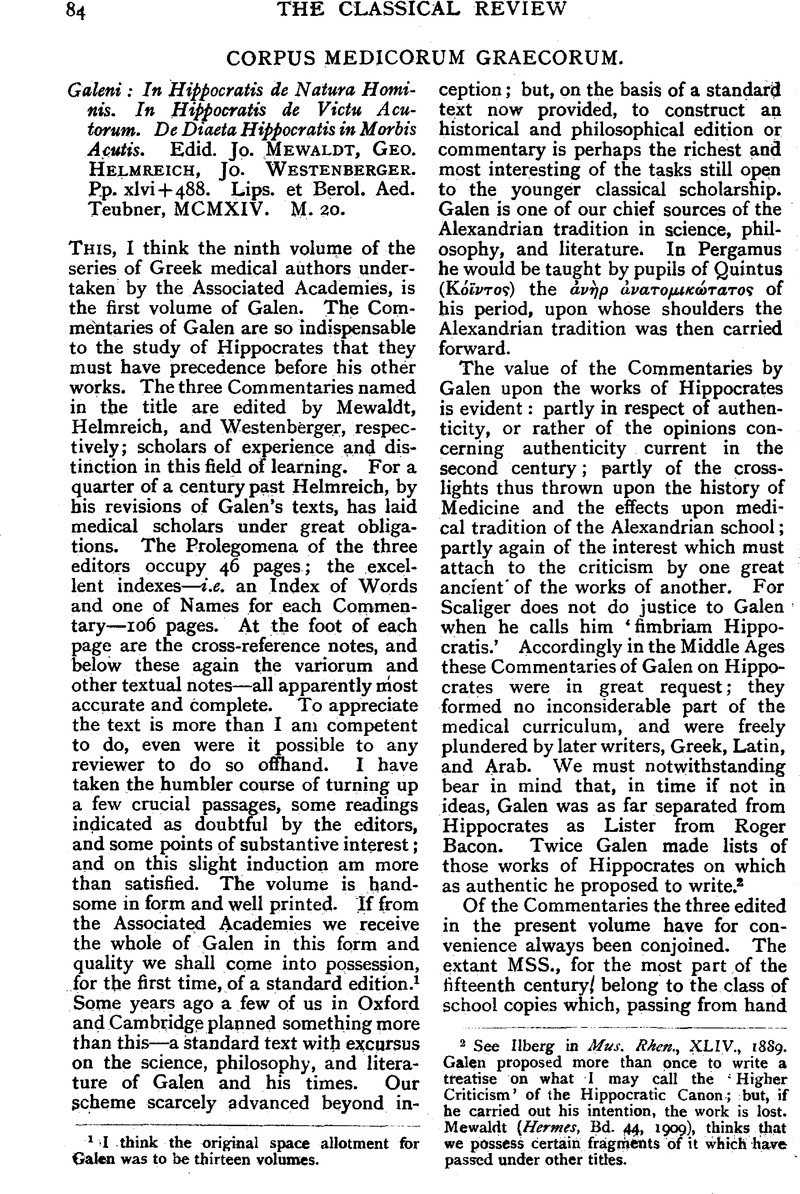No CrossRef data available.
Published online by Cambridge University Press: 27 October 2009

page 84 note 1 I think the original space allotment for Galen was to be thirteen volumes.
page 84 note 2 See Ilberg in Mus. Rhen., XLIV., 1889. Galen proposed more than once to write a treatise on what I may call the Higher Criticism' of the Hippocratic Canon; but, if he carried out his intention, the work is lost. Mewaldt (Hermes, Bd. 44, 1909), thinks that we possess certain fragments of it which have passed under other titles.
page 85 note 1 Mewaldt here refers to his researches in Acta Acad. Berol., 1912, p. 896.
page 85 note 2 René Chartier's Greco-Latin edition, in 13 vols. fol. (1679), was also monumental, but, like Kühn's later edition, very far from impeccable.
page 85 note 3 Joannis Caii Brit. op. aliquot et versiones, etc. Lovanii, 1556.
page 85 note 4 See this Review, 1896, Vol. X. C. A.
page 85 note 5 As set forth, for instance, in the treatise on Ancient Medicine, where the author urges, also, the study of the nature of thiags (τοῡ νθρώπον and τοῡ νςος) rather than of hypothesis.
page 86 note 1 The reference in Phaedrus is to the Hippocratic treatise on Ancient Medicine. Some critics, I think with justice, have perceived some quality of Socratic irony in these weightier and probably authentic books.